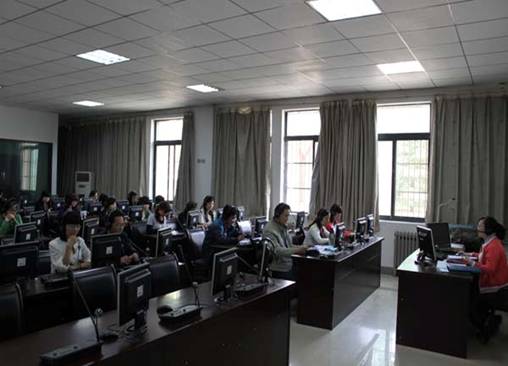The MTI degree, short for Master of Translation and Interpreting, is a professional level of education approved by the Commission of Academic Degrees of the State Council of China.
Training Objectives
This program aims at training translation professionals between the languages of English and Chinese with sound theoretical foundation, advanced translation proficiency and adequate translation experience. The students are required to possess good command of English and Chinese languages, which enable them to achieve free switch between the languages, equip them with the capability of consecutive written translation in given fields.
Currently the program focuses on the research and teaching of written translation.

Program Length
This program offers full time courses within three years. Those who have been approved to extend the length of the program should finish their study within five years.
Academic Credits
The overall credits are 30, among which compulsory courses take up 16 credits, selective courses take up 10, the rest 4 credits go to translation practice.
Translation practice includes two activities: social practice and academic report.
Social practice can be fulfilled either with a 100,000-word English–Chinese translation piece of work or a 50,000-word Chinese-English translation piece of work, which takes up 2 credits.
The other 2 credits can be obtained by attending at least two academic lectures.
Detailed Training System
1. Credit system. Credits could be earned by passing the exams of designated courses. Students are also required to take the CATTI (China Accreditation Test for Translators and Interpreters), level 2. Students can progress to thesis writing on the basis of a full completion of designated credits.
2. Seminars :The lectures are given by experienced translation professionals or experienced professors in forms of seminars assisted by multi-media teaching facilities. Teaching activities are organized in terms of various translation projects.
3. Priority is given to the improvement of practical translation capabilities. Students are required to accumulate translation practices with 100,000-word English-Chinese rendering and 50,000-word Chinese-English rendering.
4. Tutors are selected out of the experienced professors and associate professors with the qualifications to supervise postgraduate students. In addition, cross-disciplinary tutors with sound academic knowledge and profound English language proficiency are invited to supervise students in a joint effort to build up teaching strength.
Assessment
Assessment is conducted in terms of closed book examinations, opened book examinations and course papers. Degree courses mainly take forms of closed book examinations following translation practice period.
Translation Practice
The translation practice period lasts around 6-12 months, which can be assigned collectively in the second academic year or split in halves during the first two years. Translation practice reports should be submitted at the end of translation practice period.
Thesis Writing
The writing of thesis lasts for one semester. The following choices are available: translation project; experimental report or research thesis. Translation projects and experimental reports should be no less than 10,000 words; research thesis should be no less than 15,000 words.
Degree-granting
The granting of Master's Degree is subject to the fulfillment of the following three conditions:
a. complete the designated course study and get required 30 credits
b. written translation capability equivalent to that of (China Accreditation Test for Translators and Interpreters), level 2
c. fulfill one of the requirements of thesis writing and successfully complete the oral defense.

 School Homepage
School Homepage 中文
中文
